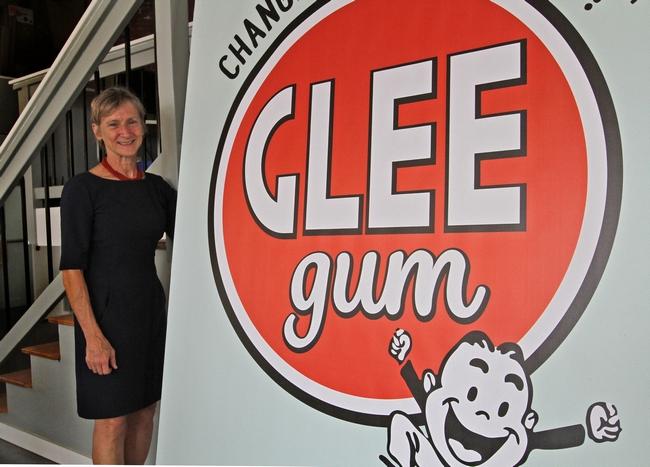By Donita Naylor
The Providence Journal, R.I.
PROVIDENCE
To counter urban decay, Deborah Schimberg bought an abandoned house in South Providence, where she and her husband, Kevin Neel, raised three children.
To fight urban blight, she planted a garden in the vacant lot next door, then founded the Southside Community Land Trust in 1981.
To save the jobs of skilled forestry workers in Guatemala and help save the rainforest, Schimberg started a company in 1995 that created markets for natural chicle, the sap of the sapodilla tree, making the trees more valuable alive than cut for lumber.
To help immigrants arriving in the United States, she worked to open the International Charter School in a former bread factory in Pawtucket in 2001.
To keep the Providence Public Library from closing its nine branches, she helped form the Providence Community Library in 2009.
To keep summer swimming programs alive and persuade the city to reopen the closed Davey Lopes pool last year, she led a committee appointed by the Providence City Council to study pools and swim instruction.
She also served as executive director of Social Venture Partners of R.I., earned a master’s in education from Harvard and taught social entrepreneurship at Brown University.
Schimberg, now 58, says she likes to solve problems in sustainable ways.
Her company, Verve, markets no-artificial-anything products she developed: Make Your Own Candy Kits, Glee Gum and Glee Gum Pops, which are about to hit store shelves nationwide.
This spring her company, which employs eight people in Providence and just moved into a solar-powered, renovated former gas station in South Providence, won the U.S. Small Business Administration award for Rhode Island Woman-Owned Small Business of the Year.
As a young woman from Cincinnati who had just graduated from Brown in 1979 with a degree in comparative literature, she saw in South Providence “a huge amount of vacant land and vacant houses,” the result of real estate disinvestment and people walking away from properties, she said Friday.
She and two friends bought an abandoned house on Dudley Street for $1,000. “We each put up $333.33 and the guy who had a job put in the extra penny.”
Next door was a vacant lot. The friends planted a garden there, and it fed 50 people in its first year. That garden was the beginning of the Southside Community Land Trust and Schimberg’s career as a serial social entrepreneur.
The city had plenty of unused land and immigrants with experience in subsistence farming, she said, and she saw that by putting them together, the landscape would be greener, the community stronger and people better-nourished. From that start 34 years ago, the land trust now promotes intensive urban farming in 49 gardens it owns in Providence, Pawtucket and Cranston.
In 1993, while Schimberg was executive director of the land trust and her children were 7, 5 and six months old, she took them with her on a fellowship in northern Guatemala with the Kellogg National Leadership Program.
Exploring sustainable development, she visited a community that produced chicle, once the basis for all chewing gum. As U.S. gum manufacturers turned to synthetic resins, however, the skilled workers who harvested chicle lost their markets, and the sap-producing trees were in danger of being sold for lumber.
Schimberg saw that concern for the environment had to be balanced by sustainable development. “A lot of people would talk about preservation at all costs, but you can’t have that if people in that area have no way to make a living.”
She brought home a block of chicle. In her kitchen, she and the children made gum, finding it so much fun that she developed do-it-yourself gum-making kits to sell in toy stores. Her company was born in 1995, and now it offers three kinds of make-your-own candy kits. It markets Glee Gum in the U.S., Canada, Europe and South Korea, and is poised for nationwide distribution of Glee Gum Pops, lollipops with a chewy bubblegum center.
Verve’s biggest customer, she said, is United Natural Foods, which is based in Providence and distributes specialty foods nationally. It supplies Glee Gum to Whole Foods Markets, she said.
In May, the company gave 54,000 of its bubblegum-filled lollipops, called Glee Gum Pops, to the National Association for the Exchange of Industrial Resources, a nonprofit based in Galesburg, Illinois, that distributes donated products to schools, churches and other nonprofits.
The gum is made in New York from consortium-supplied chicle, said Molly Lederer, a Verve spokeswoman. A factory in Mexico makes the pops, using fair-trade-certified sugar, and the products are packed in Chicago, where Verve has a warehouse.
In the South Providence headquarters, inside the former gas station where one imagines fan belts used to hang, is a mailroom filled with cartons of tiny boxes, penny samples that can be ordered by mail from the company website, www.gleegum.com. The website also has educational features, including an interactive section “From Tree to Glee,” showing how Glee Gum is made, and a place where customers can register to have a tree planted in their name in Central America.
“What’s intriguing to me about businesses,” said Schimberg, who has worked in the public, private and nonprofit sectors, “is their ability to be a vehicle for change in the world.” Money, she said, is the key to sustainability.
“I really do like starting things and putting people and resources together to make things happen,” she said. “For me, it’s a way to be creative.”
In Rhode Island, she said, “You can take almost any realm of endeavor, and you can make things happen. You can have an impact.”
And, from her perspective, there’s plenty left to do.














































































































































































































































































































































































